Going into it, I didn’t know what to expect other than it was an intense psychological thriller that was fairly polarizing with its audience. I knew it had to do with Jennifer Lawrence and Javier Bardem, Ed Harris, and Michelle Pfeiffer and had to do with unexpected guests showing up to Jennifer and Javier’s home.
This first section will be spoiler free; however, the second section will be packed with spoilers as I get into the meat and potatoes of the movie. I will warn you before we get there though.
The concept was enough to pique my interest. I’m a recluse and somewhat anti-social, to begin with. Unless it’s a group of close friends, I don’t really like going to social functions, so the idea of a bunch of rando’s showing up to my house is uncomfortable.
First off, let’s dig into the story. It starts off showing us a burning image of a young woman crying, and a burnt out house. Javier places a glowing crystal in a stand, and the house reverts back to its former glory and we pan over to Jennifer’s character waking up in bed and finding herself alone. Odd right? But a neat hook because now I want to know more. Is it something that happened before, is it a portent of what’s to come? It’s a good hook regardless.
Jennifer’s character is married to the older, Javier and you get the sense that they have moved out to the middle of nowhere in an old family estate of Javier’s. The house had suffered through a fire in which we learn Javier’s family had died. Jennifer is there to offer him support while he suffers through a bad case of writer’s block. Meanwhile, she has been singlehandedly renovating the house and breathing light back into the darkness. We learn through interactions that Javier is a renowned poet, but hasn’t written in years. Things seem hunky-dory, although Jennifer suffers from odd hallucinations from time to time where she hears glass ringing/chiming and can see the burnt out vestige of the house underplayed beneath her renovation work. Every time this happens, she races upstairs to the bathroom and mixes a yellow powder into a glass of water to quash the visions. We never know what this concoction is. We can assume it’s to help her stop hallucinating; however, there’s a point in the movie where she stops taking it and I didn’t’ see any ill effects from that decision.
At first, the movie almost had a Yellow Wallpaper feel to it. That short story by Charlotte Perkins Gilman is one of my absolute favorites. I noticed some similarities between the two, as the main character from the story and Jennifer’s character both seemed to see things that weren’t there and were steamrolled by their male counterparts. Javier does a good job of dismissing some of the things Jennifer does in the movie, and when the “guests” begin to arrive, they constantly defer to Javier with the gratitude and appreciation, almost to the point of ignoring Jennifer’s existence. This movie, like that story, very much play into the misogynistic prejudices against women.
I felt as if Jennifer’s efforts to restore the house were downplayed in the eyes of the supporting cast, and when she mentioned that she did it all herself, she was met with disbelief that a woman could do something that extravagant.
There was a definite theme of vanity and pride throughout the film. Javier does a great job losing himself in his own work and success, and near the end of the film, we see almost a complete transition with his character.
Where this movie struggled, was with the story. I never got a clear picture on what the movie was really about. What was the plot? It seemed to flounder in spots, and once it was over, I felt like the entire first half didn’t really play into the second half at all. This is probably one of the biggest issues I had with the film, was the lack of plot. Perhaps I missed the point.
The acting was strange as well. Hats off to Jennifer Lawrence, I thought she did an excellent job, and Javier Bardem did well also. However, I felt as if everyone else was exaggerating their characters to the point that it was almost comical to watch, Ed Harris especially, although I couldn’t’ tell if this was done on purpose or not.
Finally, this movie was chock full of Christian symbolism. I don’t want to get into details in this section (we’ll save it for the spoiler section), but it goes out of its way to hit you over the head (pun intended, you’ll see why later) with its symbolism. The only reason I couldn’t quite figure out, was why?
Don’t see this movie if you have issues with seeing children depicted on screen hurt. There is a scene near the end that is very difficult to watch (details forthcoming in the spoiler section).
Even after writing all this, I still don’t really know if I liked this movie. I give this movie two and a half WTF’s out of five.
Here there be spoilers. Ye’ve been warned. Also, this section is basically going to be a synopsis of the movie.
Anyway, I digress…back to Adam and Eve, Ed and Michelle. They show up to paradise, and immediately shit goes south. Javier starts to spend more time with Ed than he does with Jennifer, and even helps him out by removing some sort of tumor from his lungs? I dunno…there was a weird scene where he’s coughing and puking in the toilet and Javier is helping him. Jennifer walks in on the two. Ed is naked and bleeding from his side and Javier quickly covers it and yells at her to give them some privacy. The next day, Jennifer is cleaning up in the bathroom and there is some weird tumor looking thing stuck in the toilet. I suppose this is to show Javier’s healing powers?
Moving on from that, Michelle, Ed’s wife arrives and she embodies the very opposite of Jennifer’s character. She’s sultry, drinks, and smokes. She’s pushy where Jennifer is meek. At one point, she wants to go to Javier’s den and see the weird crystal thing, but Jennifer tells her to stay out of there. She has to warn her numerous times. Later, there is a crash from the den and Javier and Jennifer race up there to find Ed and Michelle standing by the broken shards of the crystal. Javier loses his mind and kicks everyone out. Later he comes out, locks the door and breaks the doorknob off (this is important), and then boards up his den stating that no one will get in there now. We just saw the comparison of Eve eating the apple and the both of them getting kicked out of Eden.
The next major scene that takes place, is when Ed and Michelle’s two sons arrive, bickering about their father’s will. A fight ensues and one of the sons picks up the discarded doorknob and caves in the other’s skull using the Cain and Abel finishing move. During the fight, the attacking brother’s forehead is injured and marked in the same way Cain’s is after killing his brother. Javier, Ed, and Michelle rush the man to the hospital leaving Jennifer behind to clean up the mess. And the Cain stand in rushes off into the wilderness.
It’s during this time where she is alone that we begin to see other things unravel. Up to this point, she had made some trips to the basement, but she ends up going down again and we really see some interesting comparisons. The basement is where the furnace is and I believe the representation of hell with its fire and brimstone (I know, hell isn’t always represented in such a way, but in this movie, I think it is). She’s cleaning up when the other brother returns to get his wallet that he lost during the altercation and he’s amazed that they left her behind. He can see what she means (or doesn’t) to Javier and wishes her the best of luck before departing. It’s at that time that Javier returns covered in blood and could really care less what happened to Jennifer, he’s more intent on telling her what happened to him. When she tries to tell him everything, he says he’s dirty and exhausted and wants to take a shower before going to bed. He invites her up, but she wants to finish one thing first. When she gets up there, Javier is already asleep.
Then, Ed and Michelle come back, and they have friends and family in tow. They are all dressed up nice for a funeral. Javier tells Jennifer that he invited them over to destress and have a place to hold a wake for the dearly departed. Jennifer doesn’t know what to make of it as guests continue to arrive in such a way that it reminded both my wife and me of the scene from the Hobbit where all the dwarves keep showing up at Bilbo Baggins’ home. The difference between the two was that the dwarves actually cleaned up after themselves and didn’t break anything, whereas the guests have no care whatsoever for Jennifer’s paradise and only care for themselves. In this scene, we get see Javier eating up being the center of attention when he gets to say a few words about the departed. We really see him revel in the wonder and awe that people throw his way while not caring at all about what Jennifer’s character is feeling. We also see a lot of reference between Sodom and Gomorra as the guests become more and more irreverent, sneaking off to bump the uglies, and guests even approaching her to fornicate and make merry (although the offer comes in a very forward, and disgusting manner).
Finally, after asking folks several times not to sit on a sink because it hadn’t been braced yet, they sit on it and it breaks, flooding the house. This is the great flood that God sent to cleanse the world, and it’s the same in this movie. It isn’t until the flood that the people get the hell out of Dodge. After they leave, Jennifer confronts Javier about what happened and their life in general. They get into a heated debate and she says the reason they don’t have any children is because he won’t get it on with her. He takes that as a challenge and we get our rapey/love-making scene that’s about as uncomfortable as the rest of the movie has been. Afterward, she says she’s pregnant. Javier gets his inspiration back and begins to feverishly write again. We get a scene of her dumping the odd golden powder concoction that suppressed her hallucinations down the toilet, and we flash forward.
The next time we see her, she’s about ready to pop and the house is completely renovated. She’s putting the finishing touches on in the nursery and Javier appears saying he’s finished his poem. She reads it with tears in her eyes and confirms is a masterpiece and that it’s perfect. Next thing we know, we have a call from his editor (almost immediately) saying she loves it and it’s going to be huge. To celebrate, Jennifer makes a nice, candlelit dinner for the both of them, but before we can get to eating, more guests arrive. Fans of Javier’s come to see him and ask him about his writing. Instead of kicking them out, he embraces them, much to her dismay.
This is when shit goes from what the hell to dafuq quick. The crowd grows and grows, forcing their way inside. They set up a signing station for him to sign books. People shove themselves inside and soon they begin to take. They take anything they can, even ripping up boards because they want a piece of something that belonged to Javier. Things get violent and nasty. Then, the next thing we know, we’re seeing flashes from different places. Jennifer is standing next to some sex slave prison in Eastern Europe, then we’re in a war zone and people are dying in a hail of explosions and gunfire. The crowd is growing bigger and getting crazier, turning into a cult worshiping Javier, idolizing him. Jennifer is going into labor and fighting with the crowd at the same time. When all seems lost, Javier finds her and rushes her back to his boarded up den so she can give birth. Once she gives birth, the crowd outside grows quiet. Javier goes to see what’s up and finds that they have brought the baby gifts and are waiting to see him. We’ve just seen the birth of the son of god, and they are showering him with gifts just in the bible.
Jennifer has caught on to Javier’s bullshit now though and refuses to give the baby up. He wants to take the baby and show the crowd his creation. It becomes a battle of wills. He sits in a chair staring at her as she sits on the floor with the baby. Soon, exhaustion kicks in and the next she knows, is she’s awakening to find him with the baby walking out to the crowd.
This is where it gets very disturbing. She rushes after the child, but when she catches up to Javier, the crowd already has the baby. They are crowd-surfing the infant around like he’s a giant beach ball at a Smashmouth concert. Then, because the child’s head isn’t supported, its neck snaps. Jennifer rushes through the crowd demanding that they give her the baby back, sobbing with real emotion (props to Jennifer Lawrence again, her acting was superb). When she finally breaks through, her baby is gone, its body mutilated by the cult. People are eating bits of the child, ingesting it like it’s the body of Christ. She flips out and starts stabbing folks with a shard of glass and kills a few before they lay the smackdown on her. For a moment it looks like they are about to beat her to death and desecrate her body when Javier shows up and shields her. He says they are sorry for killing his son, and all they want is to be forgiven (hitting us over the head with more religious symbolism). He says that they need to find a way to forgive them so that his son’s death wouldn’t be in vain.
Jennifer has had enough and breaks free, racing back down to Hell, eh…I mean the basement where she breaks open a big gas/oil tank. Javier tries to stop her saying he loves her, but she’s seen through all his lies and states that he doesn’t love her, that he only loves that she loves him. She lights the place up and it blows, killing everyone and burning the house down.
After you see Javier walking through the rubble relatively unscathed. He picks Jennifer up and carries her to bed. In the end, she confesses that she still loves him, and he needs her sacrifice and love to start anew. She agrees and he plucks her heart out and turns it into the same crystal we saw before. When he places it up on the mantle, the house renews and there is a new woman in his bed: the cycle starts again.
Final thoughts.
To wrap up this journey, I really think the theme of this movie is about love and sacrifice in the name of God. I got the feeling that Aronofsky isn’t a big fan of religion and used his story as a metaphor to show how much craziness happens in the name of God. I also feel like Aronofsky perhaps sees God in a negative light with not giving and only taking. However, I like to think that Javier was playing Lucifer trying to recreate what God had made and failing miserably every time. I find that story more interesting. I’m not a religious person at all, but I still failed to find what the movie was really about (talking plot here). But, as I mentioned before, perhaps I missed the point. Was this movie a horror? Sure was. Was it disturbing? On many different levels. Will I watch it again? No.

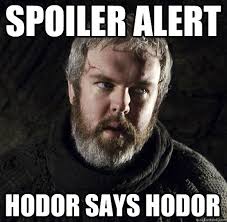
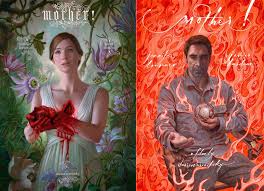
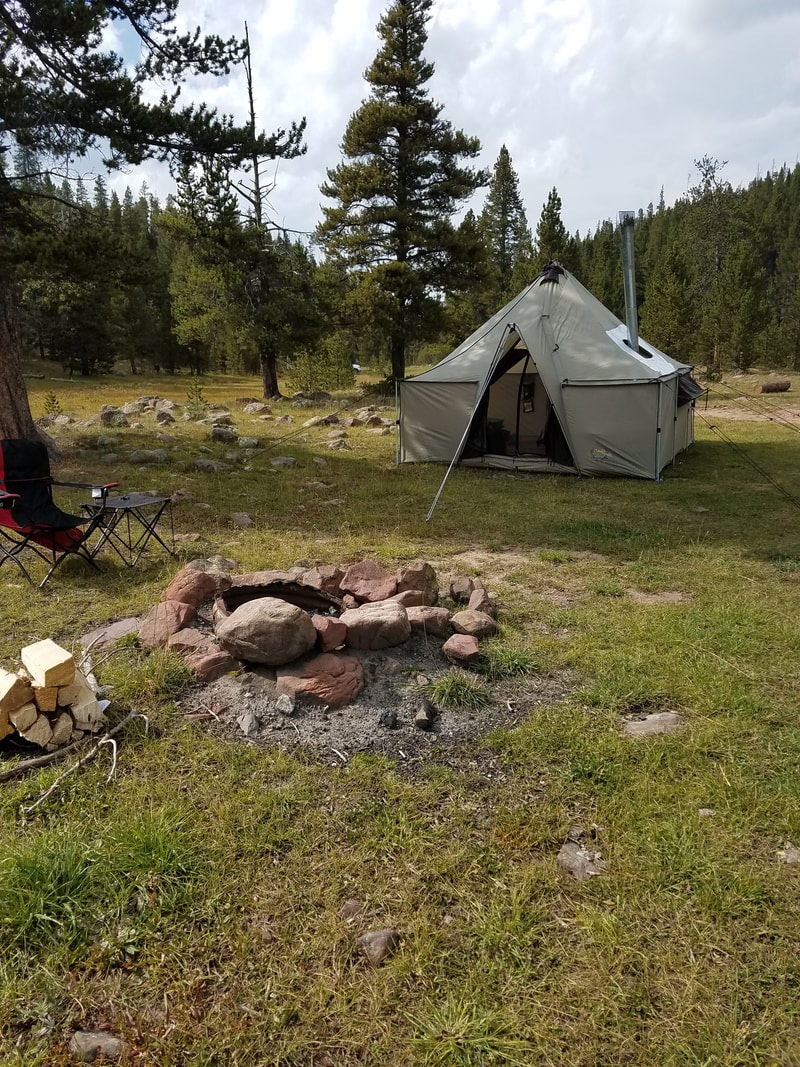
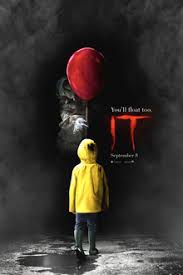
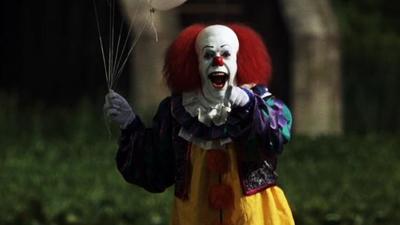
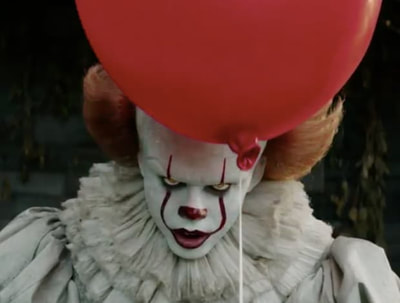

 RSS Feed
RSS Feed